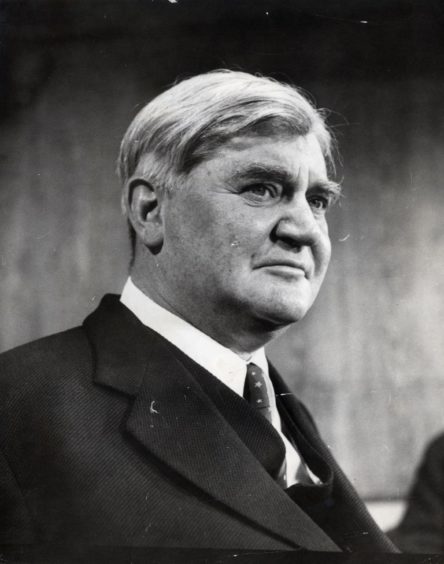John McTernan – a strategist, commentator and Tony Blair’s former political secretary – reacts to a newly published independent review of adult social care in Scotland.
Voltaire famously said: ‘We look to Scotland for all our ideas of civilisation’. If the measure of a civilised society is the way in which we look after older people then once again, with the publication of the Feeley Review into adult social care, Scotland is leading the UK.
This review was established last year by First Minister Nicola Sturgeon, to answer the question of how to create a National Care Service by integrating health and social care. It is a cliché of the pandemic that we must aim to ‘build back better’, yet very few politicians are able to put flesh on the bones of that ambition. The Feeley review is a model of how to do so. Following a rapid, but inclusive, review and supported by an expert advisory panel, it has produced a blueprint for the next decade and beyond.
At its heart is the individual who receives social care. The quality of service they receive is what should drive the service. A small move, but a revolutionary one. It sidesteps the debate about structures and zeroes in on standards, and is rooted in a rights based approach.
Feeley Review argues Scotland needs national standards – not nationalisation of care homes
It’s well known in politics that for every problem there is a solution that is simple, obvious, and wrong. In social care it is the idea that there should be no private care homes – that instead they should be taken over and run by council or health boards. The Feeley Review deals with that directly, saying that what Scotland needs is not nationalisation, but national standards. In this, of course, he follows in the steps of Nye Bevan who when he was creating the modern welfare state left a central role for the private sector, in partnership with the state.
This will be a row, no doubt. There are many who have argued for the elimination of private care homes. But, as Feeley bluntly says, any additional resources available for social care – which it sorely needs – should be spent on the wide unmet need, not on changing the nameplates on care homes.
The decisiveness of the recommendations goes further. Feeley proposes that a National Care Service should have truly national accountability, so should be transferred from local government to central government. This will be the mother of all fights with councils, but if their representative body COSLA campaigns against change it will be choosing to fight for structures rather than standards.
Risks for Scottish Government
There are risks for the Scottish Government. All reforms are difficult because, as Machiavelli said centuries ago, those who lose out fight hard against change while those who benefit aren’t yet an organised force. No-one who knows Jeane Freeman, cabinet secretary for health and sport, will doubt that she is backing these changes because they are right in principle. But the effects of these reforms will last for decades. And accountability is a double-edged responsibility.
All who know the social care sector know that it is underfunded – from wages for staff and training through to capital to invest in the growing provision that an ageing population needs. For a service with growing demands, local councils have been a useful buffer for central government. The growing needs – met and unmet – and the financing required will be a bill that falls at the feet of ministers in future.
Review would make ministers responsible for what happens in care homes
As too will service failures. Nye Bevan is said to have remarked that: “If a bedpan is dropped in a hospital corridor in Tredegar, the reverberations should echo around Whitehall”. And so it has proved – the triumphs and the tragedies of the NHS have been laid at the door of successive governments. If implemented – as it should be – the Feeley Review will make ministers responsible for what happens in care homes.
These are bold reforms. Not in Sir Humphrey’s meaning of the word – foolhardy, but the true meaning – courageous, visionary, and right.
Meanwhile, what’s happening in England? Not much, sadly.
Last year, in his speech to Conservative Party Conference, Prime Minister Boris Johnson said: ‘We will fix the injustice of care home funding, bringing the magic of averages to the rescue of millions.’ The opaque phrase about averages was a straight lift from the PM’s hero Winston Churchill who used it to describe the insurance principle. But since those 19 words to Tory conference Mr Johnson has been heroically silent on the specifics of his plans for social care. They are, to quote Churchill ‘a riddle, wrapped in a mystery, inside an enigma.’ Though, to be fair to the PM, he did rename the Department of Health as the Department of Health and Social Care.
But now that Scotland is leading the way, it is time for the debate to start round the rest of the UK. If Boris Johnson needs a plan for social care, he’d do well to do some judicious cutting and pasting.












